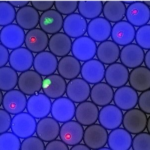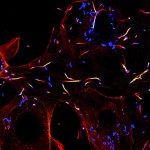Link to Pubmed [PMID] – 40071673
Link to DOI – 10.1002/eji.202249978
Eur J Immunol 2025 Mar; 55(3): e202249978
Allergen-specific antibodies, particularly of the IgE class, are a hallmark of many allergic diseases. Yet paradoxically, (1) a proportion of healthy individuals possess allergen-specific IgE without clinical signs of allergy; (2) some, but not all, allergic individuals develop a more severe disease over time or fail to respond to allergen-specific immunotherapy; and (3) allergen-specific IgG antibodies can inhibit IgE-mediated responses but they can also induce allergic reactions. In this review, we discuss the occurrence of and transition between nonpathogenic and pathogenic allergen-specific antibody responses in the light of a two-stage model. We recapitulate different factors and scenarios that may induce different inflammatory conditions and qualitatively distinct allergen-specific T- and B-cell responses, influencing IgE origins and affinities, IgE/IgG(4) ratios, IgG effector functions, antibody glycosylation patterns, Fc and glycan-binding receptor expression and involvement, and ultimately their propensity to elicit allergic responses. Differences in these antibody characteristics may determine the onset of symptomatic allergy and the severity or remission of the disease.


